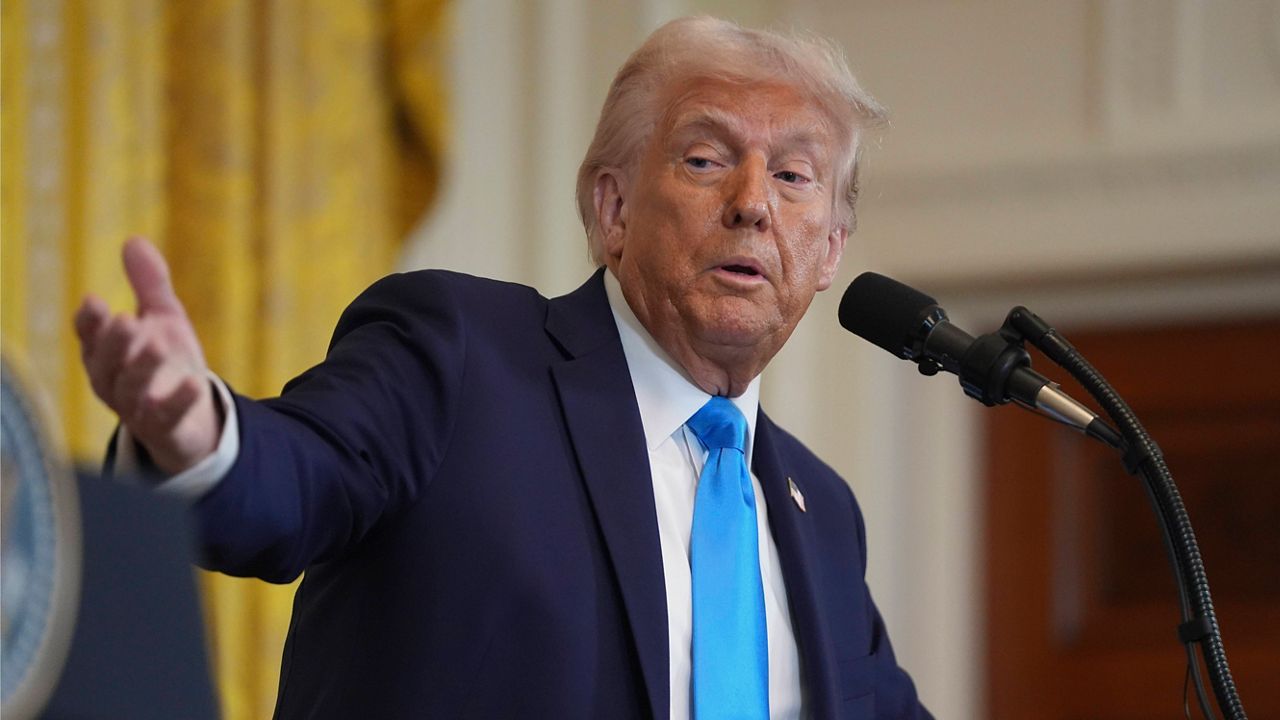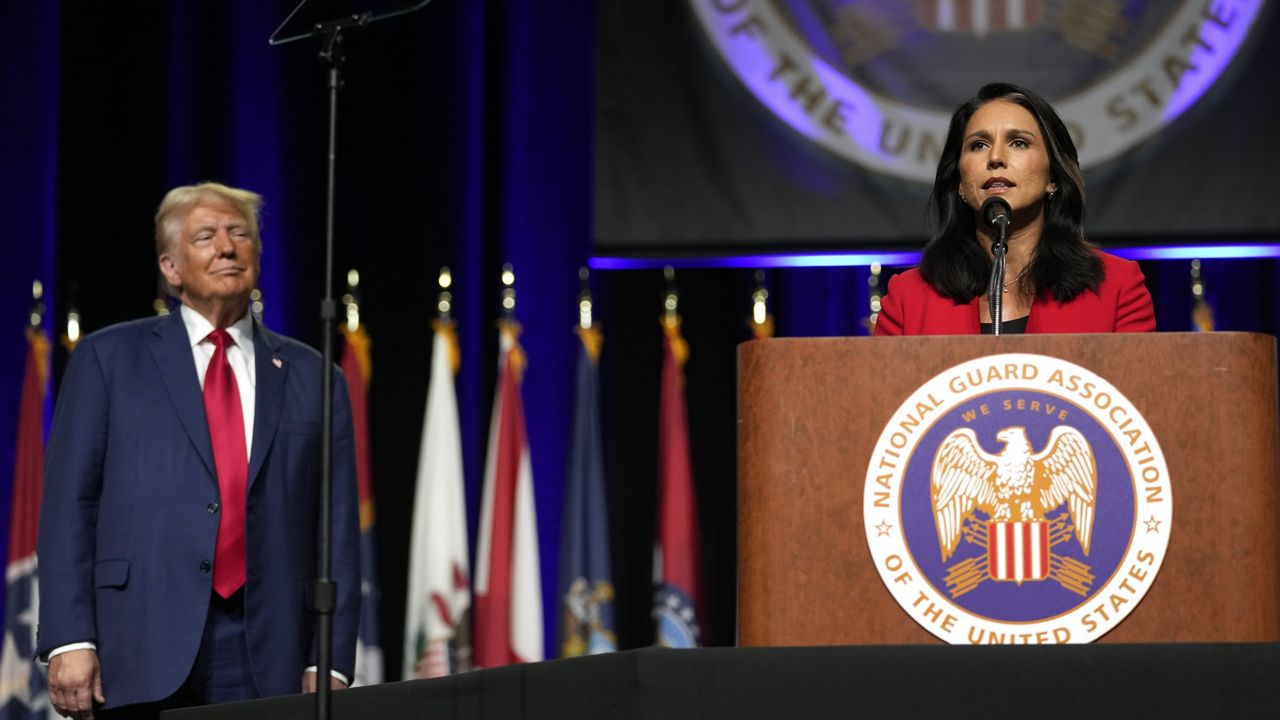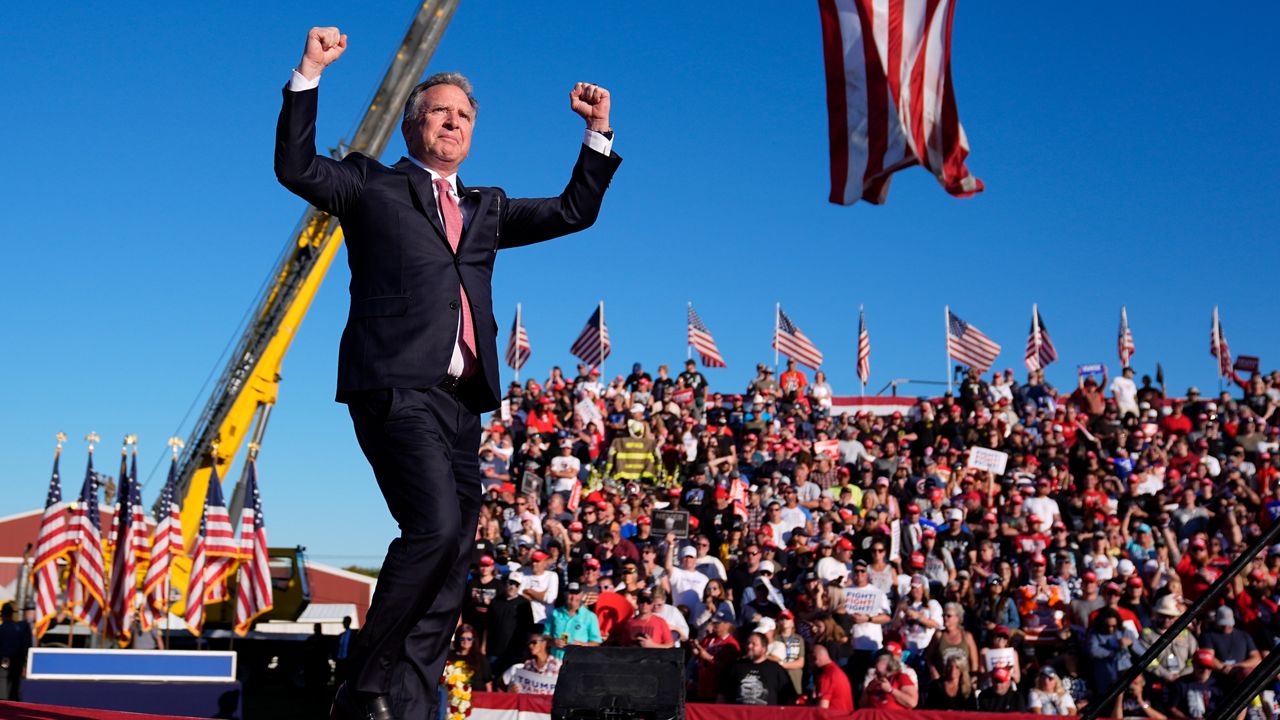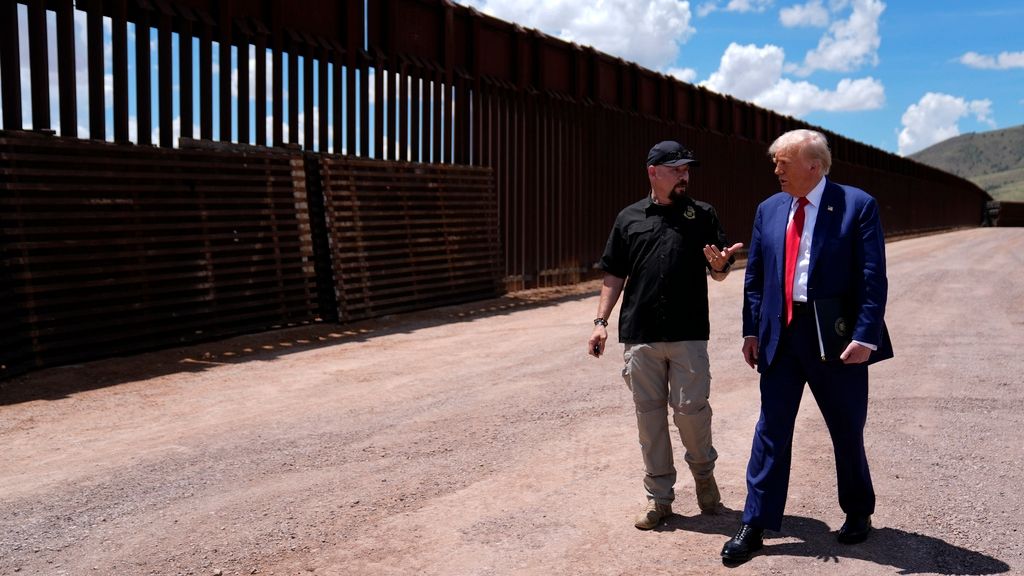Tim Walz, the two-term Democratic governor of Minnesota, has gone from relative obscurity to his party’s nominee to be the next vice president of the United States on the strength of his resume and the effectiveness of his attacks on former President Donald Trump and other Republicans.
Before he entered politics in 2006, he was a schoolteacher, a command sergeant major in the Army National Guard, a state championship-winning football coach and the founder of the first gay-straight alliance at his high school in the 1990s.
Now, after six terms in Congress and amid his second term as governor of his state, Walz, 60, is joining Vice President Kamala Harris to be her top lieutenant in the fight to beat Trump and his running mate, Ohio Sen. JD Vance. If they win, Walz will be a heartbeat away from the presidency.
Here’s what you need to know about Walz’s life and career.
Growing up in rural Nebraska and joining the Army National Guard
Walz was born and raised in rural West Point, Neb., to Darlene Walz, who worked at a nursing home, and James Walz, a schoolteacher and administrator who died of lung cancer in 1984. He graduated from Butte High School in 1982, where he played football and basketball, earning accolades in the local paper for his achievements on the gridiron.
"My high school class was 24 people," Walz says in a Harris campaign video, quipping: "I was related to half of them."
The school housed kindergartners through 12th graders all in one building, Walz told Nebraska’s Norfolk Daily News in 2006. During summers, he and the other students worked on farms.
"I did real well on standardized tests," he told the paper in 2006. "I was kind of a free spirit, maybe a little bit of the class clown."
After high school, at age 17, he joined the Army National Guard. He served for 24 years, ending his tenure as a command sergeant major in 2005. In 1989, he was named Nebraska Citizen-Soldier of the Year.
“My dad — a Korean War era veteran, an educator and a cigarette smoker — died of lung cancer when I was a teenager, and my family struggled enormously to pay his outstanding medical bills,” Walz wrote in a 2022 op-ed. “We were able to get by on Social Security survivor benefits and my mom's job in a nursing home. That experience led me to choose a career in public service, like my father.”
After his father died, Walz traveled around the country for a time, ending up in Jonesboro, Ark., where he worked in a factory that built tanning beds before ultimately returning to his home state.
Schoolteacher, football coach and a DUI
In 1989, Walz graduated from Chadron State College in Nebraska with a teaching degree paid for by the GI Bill and spent the next year teaching English and American history in southern China, returning to the country during subsequent summers to lead tours. He was part of the first contingent of government-sanctioned American educators to teach in China.
When he returned stateside, he began teaching high school geography in Alliance, Neb., where he met his fellow teacher and future wife Gwen Whipple. The pair would marry in 1994 and ultimately had two kids of their own, with the help of in vitro fertilization, Walz frequently notes.
"She would always say, 'Mr. Walz, you have the loudest voice I ever heard,' " Walz told the Norfolk Daily News in 2006, recalling his classes would sometimes disrupt her classes in the next room over.
The newlyweds honeymooned in China, along with 60 students, the Minnesota Star Tribune reported in 2018.
In 1993, Walz was named the Outstanding Young Nebraskan “for his service in the education, military, and small-business communities,” according to his 2017 campaign biography. But in 1995, at age 31, he pleaded guilty to reckless driving after being pulled over going 96 mph in a 55 mph zone and failing sobriety and breath tests. After the arrest, Walz stopped drinking alcohol (his favorite drink is now Diet Mountain Dew, a trait he shares with Vance), according to the Star-Tribune.
In 1996, Walz and his wife moved to her home state, Minnesota, where they would stay the rest of their lives. They both got jobs at Mankato West High School in a small city in the southern part of the state. Walz took on the defensive coordinator role for the school’s football team, helping lead them to a state championship in 1999.
“We ran a 4-4 [defense] where we read guards. At the time I had really good athletes and good linebackers,” Walz recalled in a February interview with the liberal podcast Pod Save America. “Look, I did 24 years in the military, I was teaching and then I started running for Congress…. People have told me this: ‘nah, [you won] 'cause you won that state championship.’”
Also in 1999, Walz became the faculty advisor for his school’s first gay-straight alliance, just three years after Democratic President Bill Clinton signed a law banning federal recognition of same-sex marriage and at a time when Walz’s fellow soldiers could be discharged from the military on suspicion for being gay.
“It really needed to be the football coach, who was the soldier and was straight and was married," Walz told the Star-Tribune in 2018.
Getting his start in politics
Walz has long cited the GI Bill program that funded his education and the Social Security benefits his mother lived off of after his father’s death as why he was a Democrat, but he says he was never particularly interested in politics until the 2004 election. After the Sept. 11, 2001, attacks, Walz was deployed to Europe as part of Operation Enduring Freedom for seven months, according to Minnesota Public Radio.
Then, in August 2004, as the wars in Afghanistan and Iraq were raging, he took two of his students to see a President George W. Bush speech at a local quarry.
“I accompanied two students who wanted to hear the speech. When we arrived, one of my students was turned away because of a John Kerry sticker on his wallet,” Walz said on his campaign website. “We were ordered to board a bus to take us away from the quarry. Though I was allowed to stay – after offensive questioning by a campaigner – the boys were told to leave. This was a teachable moment for them and for me. I decided that, if a command sergeant major could be harassed for wishing to hear his commander-in-chief, the political process was deeply broken.”
Walz told Congressional Quarterly after he was elected to Congress in 2006, he “probably” would never have gotten involved in national politics had the incident at the quarry never occurred. Instead, he volunteered for Democratic presidential candidate John Kerry and became a local coordinator for the campaign.
He left the Army National Guard in 2005 and underwent a surgery to repair damage in his ear from the artillery he worked with when he served, according to medical records reported on by MPR in 2018. He then began campaigning for Congress. A young politician, recently elected to the Senate from Illinois, ended up campaigning for him in the homestretch of that election: Barack Obama.
Walz beat six-term Republican Rep. Gil Gutknecht in what NBC News described at the time as “an unexpectedly tough battle” for the incumbent in a Republican-leaning, rural Minnesota district. The win for Walz made him the highest-ranking retired enlisted soldier ever to serve in Congress, according to his congressional biography.
"The greatest thing we have and the greatest opportunity we have was casting that ballot today,” Walz told MPR after his victory. “Many people have felt that doom and gloom over the past few years. We have been in a deep funk; we have been making bad decisions. But you know what, I have been saying it for months, there was nothing wrong with America that an election wouldn't fix."
The Minnesota schoolteacher would end up serving 12 years in Congress and rose to be the highest-ranking Democrat on the House Veterans’ Affairs Committee during his final term.
While in Congress, he was a reliable liberal vote while gaining a reputation for bipartisanship while working on veterans issues and agriculture policy.
Governor of Minnesota
In 2018, Walz left Congress to run for governor of Minnesota after the Democratic incumbent, Gov. Mark Dayton, declined to run for a third term. Firmly in the Trump-era of U.S. politics, Walz beat the Trump-endorsed Republican Jeff Johnson, a county commissioner in the state and the GOP’s 2014 nominee for governor.
Walz won by nearly 12 percentage points, alongside his running mate Peggy Flanagan. Flanagan, the state’s attorney general and a member of the White Earth Band of Ojibwe, would become the first Native American woman to serve as a state’s governor if Walz were to leave for Washington in January.
In 2020, Walz saw some of the most volatile protests in the wake of the police murder of George Floyd, an unarmed Black man, in Minneapolis. The day after the killing, Walz described the “lack of humanity” in the video of Floyds death “disturbing” and “sickening” and eventually called a special session of the legislature to work on police reform bills, which he signed into law within weeks of Floyd’s killing.
But protests and rioting in the Minneapolis-Saint Paul area captured the nation’s attention, causing hundreds of millions of dollars in damage and resulting in the police station where some of the police officers involved in Floyd’s death worked being burned to the ground. At least two people died in the rioting. Walz called in thousands of National Guard troops to bring the riots to an end. This year, as he was being considered by Harris to be her running mate, a spokesperson for Walz told the New York Times that it was “a tragic time for our state and our country” and that “Governor Walz took action and deployed the National Guard to keep our city safe.”
Walz won a second term in 2022, beating a Republican legislator Scott Jensen, known for his false claims and conspiracy theories about the COVID-19 pandemic. While Walz won by a smaller margin than he did in 2018, he returned to Saint Paul with Democratic-control of both houses of the state legislature, enabling a much more legislatively active second term.
Selling Walz as a progressive champion, the Harris campaign boasted on Tuesday that he “has done more to help middle class families get ahead than any other statewide leader in recent memory.” It’s a claim that holds some water and one that Trump and Republicans are pushing back on, labeling Walz a “radical leftist” and “a dangerously liberal extremist.”
Through his nearly five years in office, he instituted universal free school lunches, signed a law mandating 20 weeks of paid family and medical leave for workers, signed abortion protections in the aftermath of the end of Roe v. Wade, legalized recreational marijuana, set a goal that Minnesota would rely on 100% renewable electricity by 2040, signed a law that will allow 16 and 17-year-olds to preregister to vote for when they turn 18, funded a child tax credit for low-income families and raised taxes on investment income for the wealthy, set aside billions for local infrastructure improvements and signed a law allowing undocumented immigrants get driver’s licenses.
“It’s no surprise that San Francisco Liberal Kamala Harris wants West Coast wannabe Tim Walz as her running-mate – Walz has spent his governorship trying to reshape Minnesota in the image of the Golden State,” Trump campaign press secretary Karoline Leavitt argued in a statement. “From proposing his own carbon-free agenda, to suggesting stricter emission standards for gas-powered cars, and embracing policies to allow convicted felons to vote, Walz is obsessed with spreading California’s dangerously liberal agenda far and wide.”
“If Walz won’t tell voters the truth, we will: just like Kamala Harris, Tim Walz is a dangerously liberal extremist, and the Harris-Walz California dream is every American’s nightmare," Leavitt argued.
Walz sells his progressive platforms a tad differently than the Trump campaign has tried to frame them.
“You know, I'm a horrible progressive, because our children eat breakfast and lunch in school,” Walz joked on a “Pod Save America” episode last month. “We just got to embrace the things that make this country great.”









